-
 Bitcoin
Bitcoin $117,462.8204
-2.03% -
 Ethereum
Ethereum $3,061.1595
1.10% -
 XRP
XRP $2.9139
-2.19% -
 Tether USDt
Tether USDt $1.0002
0.02% -
 BNB
BNB $685.1357
-1.24% -
 Solana
Solana $161.3803
-2.11% -
 USDC
USDC $1.0002
0.04% -
 Dogecoin
Dogecoin $0.1948
-2.92% -
 TRON
TRON $0.2987
-0.89% -
 Cardano
Cardano $0.7330
-1.27% -
 Hyperliquid
Hyperliquid $47.7888
0.13% -
 Stellar
Stellar $0.4514
-2.93% -
 Sui
Sui $4.0169
2.74% -
 Chainlink
Chainlink $15.7088
-2.57% -
 Hedera
Hedera $0.2356
-3.33% -
 Bitcoin Cash
Bitcoin Cash $488.6656
-3.61% -
 Avalanche
Avalanche $21.2955
-1.47% -
 UNUS SED LEO
UNUS SED LEO $9.0415
0.42% -
 Shiba Inu
Shiba Inu $0.0...01332
-0.82% -
 Toncoin
Toncoin $3.0124
-0.62% -
 Litecoin
Litecoin $94.2175
-2.07% -
 Polkadot
Polkadot $4.0011
-0.61% -
 Monero
Monero $333.5714
-3.46% -
 Uniswap
Uniswap $9.1114
-1.56% -
 Dai
Dai $1.0000
0.02% -
 Ethena USDe
Ethena USDe $1.0005
0.00% -
 Bitget Token
Bitget Token $4.4951
1.87% -
 Pepe
Pepe $0.0...01242
0.47% -
 Aave
Aave $321.9943
0.51% -
 Bittensor
Bittensor $434.1984
5.13%
What is the EMA crossover strategy?
The EMA crossover strategy uses short-term and long-term Exponential Moving Averages to identify trend reversals and generate buy/sell signals in cryptocurrency trading.
Jul 14, 2025 at 09:21 pm
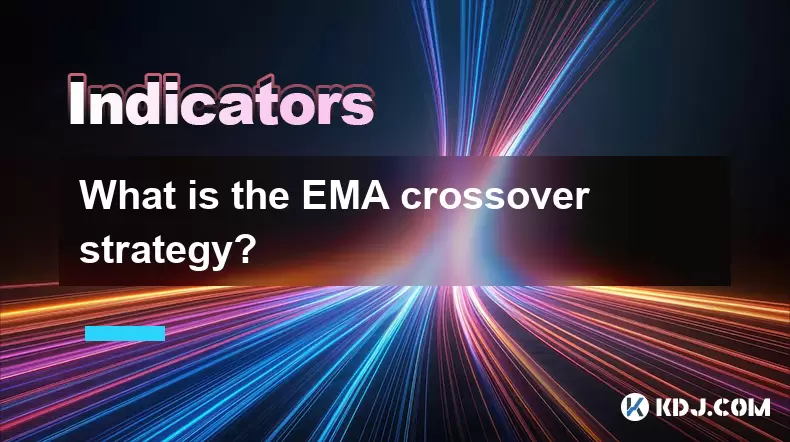
Understanding the EMA Indicator
The Exponential Moving Average (EMA) is a type of moving average that places greater weight and significance on the most recent data points. Unlike the Simple Moving Average (SMA), which assigns equal weight to all observations in the period, EMA gives more importance to recent prices, making it more responsive to new information.
In cryptocurrency trading, the EMA is widely used because digital asset markets are highly volatile and fast-moving. Traders often rely on short-term EMAs like the 9-day or 12-day and longer-term EMAs such as the 50-day or 200-day to gauge momentum and trend direction.
Key Takeaway: The EMA reacts faster to price changes compared to SMA, making it a preferred tool for identifying trend reversals and entry/exit signals.
What Is an EMA Crossover?
An EMA crossover strategy involves using two different EMA lines — typically one short-term and one long-term — to generate buy or sell signals based on their interaction. When the shorter EMA crosses above the longer EMA, it's considered a bullish signal, suggesting upward momentum may be beginning.
Conversely, when the shorter EMA crosses below the longer EMA, this is seen as a bearish signal, indicating potential downward movement. These crossovers are used by traders to time entries and exits in line with broader trends.
Key Takeaway: EMA crossovers help identify shifts in market sentiment by comparing short-term and long-term momentum indicators.
How to Set Up an EMA Crossover Strategy
To implement the EMA crossover strategy effectively, follow these steps:
- Choose your charting platform: Popular platforms include TradingView, Binance’s native tools, or MetaTrader.
- Select the asset pair: For crypto traders, common pairs include BTC/USDT, ETH/USDT, or altcoins against stablecoins.
- Add the EMA indicators: Most platforms allow you to add multiple EMAs simultaneously.
- Set the EMA periods: A commonly used setup is the 9-day and 21-day EMA, although some traders prefer combinations like 12-day and 26-day or 50-day and 200-day.
Once both EMAs are applied to the chart, watch for intersections between the two lines. Each crossover can serve as a trigger point for entering or exiting trades.
Key Takeaway: Selecting the right EMA periods depends on your trading style — day traders might use shorter intervals, while swing traders may opt for longer ones.
Interpreting EMA Crossover Signals
When interpreting EMA crossovers, it's important to understand the context in which they occur:
- Bullish crossover: When the fast EMA rises above the slow EMA, especially after a downtrend, it suggests buying pressure is increasing.
- Bearish crossover: When the fast EMA falls below the slow EMA, particularly after an uptrend, it indicates selling pressure may be taking over.
However, not all crossovers result in strong trends. In ranging or sideways markets, false signals can occur frequently. To reduce noise, many traders combine EMA crossovers with other tools like volume analysis or RSI to confirm signals.
Key Takeaway: Always assess the broader market structure before acting on any EMA crossover signal to avoid being misled by false breakouts.
Implementing Risk Management with EMA Crossovers
Using EMA crossovers without proper risk control can lead to significant losses, especially in the unpredictable world of cryptocurrencies. Here’s how to manage risk effectively:
- Use stop-loss orders: Place stop-loss levels just below recent support zones during bullish setups and above resistance during bearish setups.
- Adjust position size: Allocate capital based on the strength of the signal and your overall portfolio exposure.
- Backtest your strategy: Before deploying real funds, test your EMA crossover strategy across historical data to evaluate its performance under various market conditions.
Many successful traders also use trailing stops to lock in profits as the trade moves in their favor, allowing them to ride trends without manually adjusting exit points constantly.
Key Takeaway: Risk management is crucial when using EMA crossovers, especially in volatile crypto markets where sudden reversals are common.
Frequently Asked Questions
Q: Can EMA crossovers be used on any cryptocurrency?
Yes, EMA crossovers are applicable to all cryptocurrencies, including Bitcoin, Ethereum, and altcoins. However, the effectiveness may vary depending on liquidity and volatility.
Q: How do I choose the best EMA periods for my trading style?
Short-term traders often use tighter EMAs like 5 and 8, while medium-term traders might go with 12 and 26. Long-term investors may rely on 50 and 200-day EMAs to capture major trend changes.
Q: Do EMA crossovers work well in sideways markets?
EMA crossovers tend to produce more false signals in range-bound or choppy markets. It's advisable to combine them with other indicators like Bollinger Bands or volume filters.
Q: Is the EMA crossover strategy suitable for beginners?
While the concept is simple, mastering the timing and interpretation requires practice. Beginners should start with demo accounts and gradually refine their approach through backtesting and paper trading.
Disclaimer:info@kdj.com
The information provided is not trading advice. kdj.com does not assume any responsibility for any investments made based on the information provided in this article. Cryptocurrencies are highly volatile and it is highly recommended that you invest with caution after thorough research!
If you believe that the content used on this website infringes your copyright, please contact us immediately (info@kdj.com) and we will delete it promptly.
- BlockDAG, X1 App, CRO Price: Decoding the Hype and the Hope
- 2025-07-16 01:20:12
- Trump, Cryptocurrencies, and Remarks: A Wild Ride in the Crypto World
- 2025-07-16 01:35:12
- Pumpfun's Wild Ride: From Explosive Launch to Crash Landing?
- 2025-07-16 01:35:12
- Trump, Meme Coins, and Market Mayhem: What's the Deal?
- 2025-07-16 01:35:14
- Gemini, Tokenized Stocks, and EU Demand: A New Era for Investors
- 2025-07-16 01:35:14
- Little Pepe: The Dogecoin Alternative Rallying Towards $0.10?
- 2025-07-16 01:40:13
Related knowledge
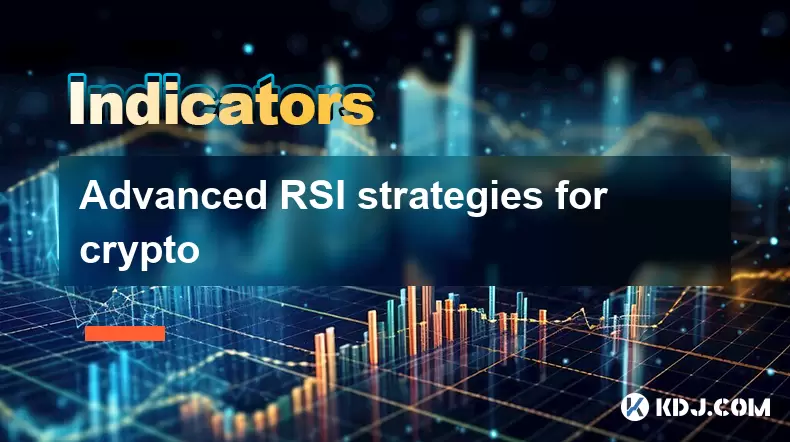
Advanced RSI strategies for crypto
Jul 13,2025 at 11:01am
Understanding the Basics of RSI in Cryptocurrency TradingThe Relative Strength Index (RSI) is a momentum oscillator used to measure the speed and chan...
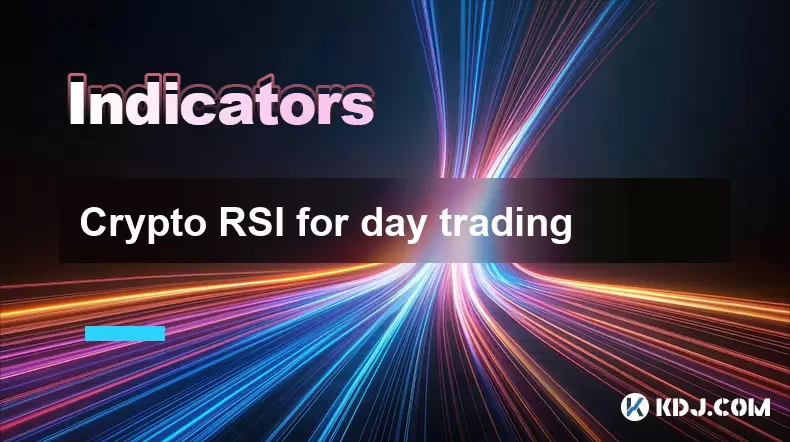
Crypto RSI for day trading
Jul 12,2025 at 11:14am
Understanding RSI in the Context of Cryptocurrency TradingThe Relative Strength Index (RSI) is a momentum oscillator used to measure the speed and cha...
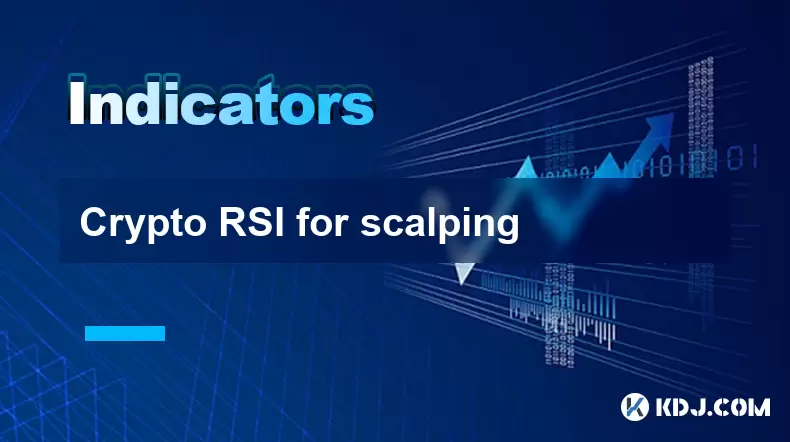
Crypto RSI for scalping
Jul 12,2025 at 11:00pm
Understanding RSI in the Context of Crypto TradingThe Relative Strength Index (RSI) is a momentum oscillator widely used by traders to measure the spe...
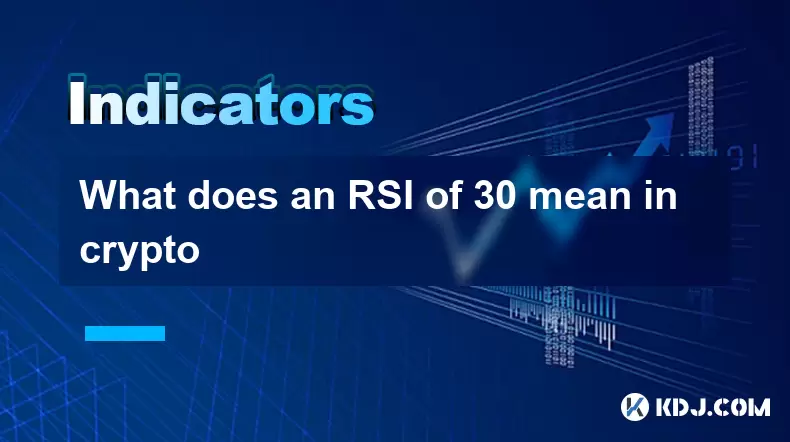
What does an RSI of 30 mean in crypto
Jul 15,2025 at 07:07pm
Understanding RSI in Cryptocurrency TradingRelative Strength Index (RSI) is a momentum oscillator widely used in cryptocurrency trading to measure the...
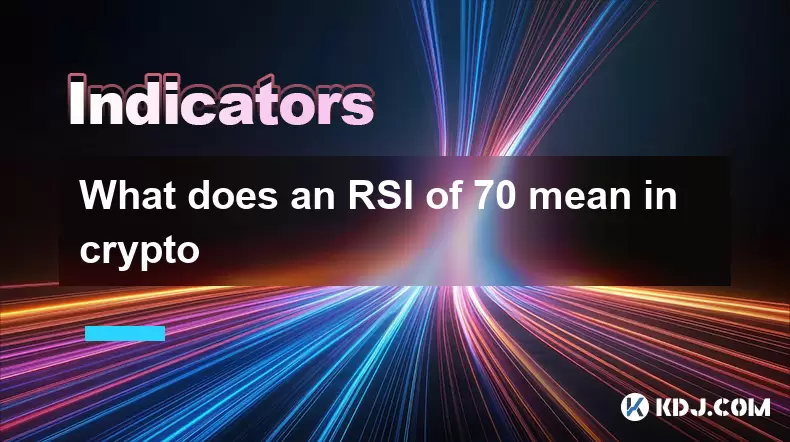
What does an RSI of 70 mean in crypto
Jul 13,2025 at 06:07pm
Understanding the RSI Indicator in Cryptocurrency TradingThe Relative Strength Index (RSI) is a widely used technical analysis tool that helps traders...
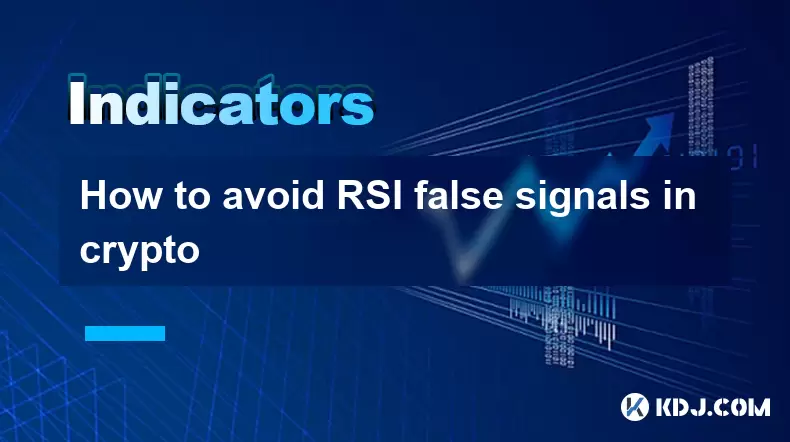
How to avoid RSI false signals in crypto
Jul 13,2025 at 06:21pm
Understanding RSI and Its Role in Crypto TradingThe Relative Strength Index (RSI) is a momentum oscillator used to measure the speed and change of pri...

Advanced RSI strategies for crypto
Jul 13,2025 at 11:01am
Understanding the Basics of RSI in Cryptocurrency TradingThe Relative Strength Index (RSI) is a momentum oscillator used to measure the speed and chan...

Crypto RSI for day trading
Jul 12,2025 at 11:14am
Understanding RSI in the Context of Cryptocurrency TradingThe Relative Strength Index (RSI) is a momentum oscillator used to measure the speed and cha...

Crypto RSI for scalping
Jul 12,2025 at 11:00pm
Understanding RSI in the Context of Crypto TradingThe Relative Strength Index (RSI) is a momentum oscillator widely used by traders to measure the spe...

What does an RSI of 30 mean in crypto
Jul 15,2025 at 07:07pm
Understanding RSI in Cryptocurrency TradingRelative Strength Index (RSI) is a momentum oscillator widely used in cryptocurrency trading to measure the...

What does an RSI of 70 mean in crypto
Jul 13,2025 at 06:07pm
Understanding the RSI Indicator in Cryptocurrency TradingThe Relative Strength Index (RSI) is a widely used technical analysis tool that helps traders...

How to avoid RSI false signals in crypto
Jul 13,2025 at 06:21pm
Understanding RSI and Its Role in Crypto TradingThe Relative Strength Index (RSI) is a momentum oscillator used to measure the speed and change of pri...
See all articles

























































































